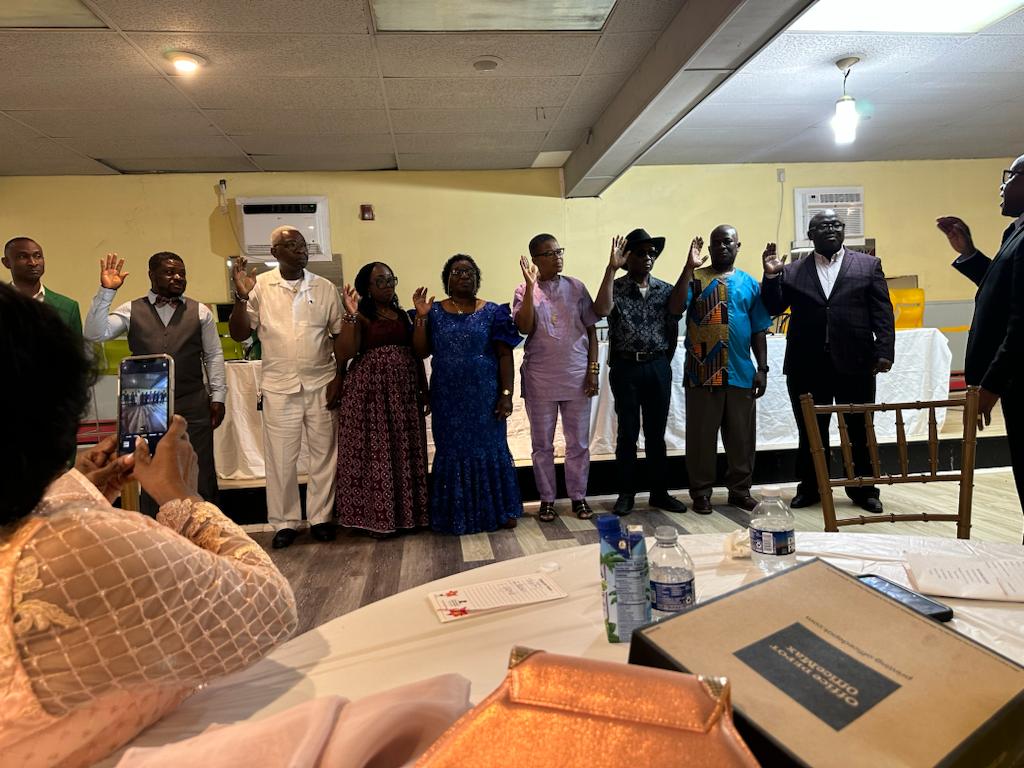
When I ( Karyokie Peeco Conway) first joined the River Gee County Association in the Americas (RIGCAA) back in 2009, I had high hopes for what this organization could achieve. However, over the years, I have come to realize that the challenges faced by RIGCAA are not unique to this particular association but are instead reflective of a larger problem within Liberian community organizations, including the Union of Liberian Associations in the Americas (ULAA).
My initial encounter with RIGCAA was disheartening. The first meeting I attended was marred by chaos, with Mr. Birch and Mr. George Nagbe locked in a fierce leadership battle. This conflict not only affected the national level but also permeated throughout the organization. It reached its peak at the 2010 National Convention in Jersey, where Mr. Jerome Koon and Mr. George Nagba battled for the position of National President, seeking to replace Mr. Charles Quitee, who was constitutionally banned from seeking a third term. Mr. Nagba emerged as the victor, but the aftermath resulted in a split within the organization.
Unfortunately, the conflicts within RIGCAA did not dissipate with time. Even after Mr. Aloysius Benjamin-Mr. Syvanus Tipayson’s recent victory in July 2023 over former vice president Mr. Wilfrey Winn-Roosevelt Swen, tensions, and divisions continue to plague the organization. In 2012, Mrs. Alice W. Mulbah succeeded Nagbe, but it is my belief that Mr. Nagbe chose not to seek a second term due to the infighting that consistently hindered progress. Instead of acting as pillars of support, former presidents like Charles Quitee, Nagbe, and Mulbah became active saboteurs, aligning themselves with groups that undermined the administration led by Mr. Isaac Toee.
A prime example of this behavior was Mrs. Mulbah’s refusal to hand over the library in Fishtown, River Gee County, Liberia, to Mr. Toee and also insisting on not turning over funds received for the library project to Mr. Toee because Mrs. Mulbah thought that she was the best person to continue the library project although she was not an official of the organization at the time. Such actions only serve to further fracture the organization, diverting attention away from the critical issues that demand our focus. The county is grappling with significant challenges, including a lack of qualified teachers, insufficient basic services, and rampant unemployment. Instead of collectively addressing these pressing concerns, internal strife continues to consume RIGCAA’s energy and resources.
To ensure the sustainability of RIGCAA, I had discussions with President Benjamin regarding a potential solution. I proposed that every member, in addition to their contributions to their respective chapters, contribute $10 monthly to the national organization. This additional financial support would provide a reliable source of income for RIGCAA, enabling it to represent the interests of its members effectively. DuringMr. Toee’s administration, Mrs. Martha Freeman worked tirelessly to organize fundraising events to raise funds for RIGCAA. Mrs. Freeman did an awesome that I am really proud of. Still, on the issue of a reliable source of funding for RIGCAA, some members suggested an even higher monthly contribution, such ideas failed to gain traction within RIGCAA’s chatroom, primarily due to the toxic environment characterized by insults and personal attacks.
The truth is that such behavior drives people away from the organization and undermines its ability to achieve its goals. It is disheartening to witness the erosion of unity and camaraderie that should be the bedrock of any community association. Instead, we find ourselves embroiled in internal conflicts, perpetuating a cycle of dysfunction that hampers our progress.
With Benjamin-Tipayson now leading the organization, it is my sincere hope that he and his administration will redirect their efforts toward addressing the crucial problems facing our county. It is time for RIGCAA to shine a light on these issues and work collaboratively with the county leadership to find sustainable solutions. However, for this to be possible, a fundamental shift in mindset is necessary. We must prioritize unity, respect, and constructive dialogue within our organization.
Let us learn from the mistakes of the past and rebuild RIGCAA into an association that serves as a force for positive change. By embracing inclusivity, fostering open communication, and encouraging the participation of all members, we can forge a stronger and more effective organization that uplifts River Gee County and its diaspora community.
It is my hope that RIGCAA will seize this opportunity for renewal, demonstrating to other Liberian community organizations, including ULAA, that unity and cooperation are the keys to progress. Together, we can overcome the challenges that lie ahead and build a brighter future for all Liberians.
Woh I like your articles, saved to bookmarks! .